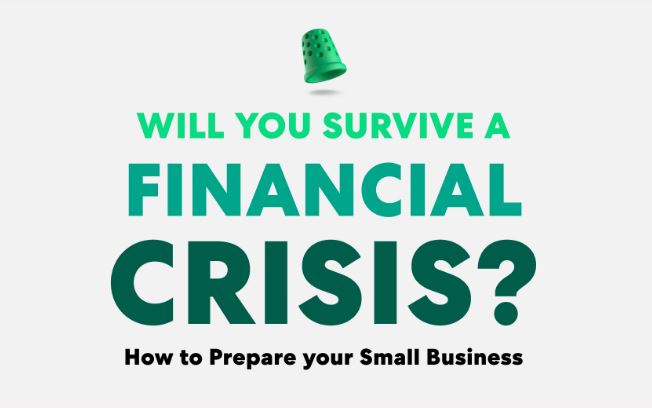Table of Contents
It would be an understatement to say these are hard times.
But, it’s not the first time the economy has been rocked. There have been events that have rocked the economy of the world in the past.
In 1929, The Great Depression caused a crash in the stock market that led to the closure of about 20,000 companies. Eighty years later, The Great Recession of caused the closure of many small businesses which accounted for 40% of the unemployment rate. However, most recently, the Coronavirus pandemic has brought so many business activities to a standstill.
There are concerns that its impact of the pandemic could be devastating to every business, especially small-scale ones. Already, it has caused a huge number of businesses to be permanently shut down with more expected to follow. As an entrepreneur, this is a time to re-evaluate your decisions and learn how to cope in a massively bleeding economy. This article aims to give you insight on how to prepare for a potential financial crisis.
Diversify Your Investments
To help your small business survive, you need to diversify your investments. As much as every business has a leading product or service, it would really help to branch out into other businesses, to increase your sources of income. Having multiple incomes would provide more revenue to make up for losses due to the pandemic. For instance, after the 9/11 attack on the World trade center, airline sales declined causing Priceline to suffer massive losses. However, once they expanded into hotels, their profit margins rose astronomically.
Reduce Your Debt
Accumulating debts is never a good way to help your business recover. It is very important to preserve cash and reduce your expenses to the barest minimum this period, to keep your finances healthy. Entrepreneurs singlehandedly bear any risks to their businesses, therefore you are in pole position to prevent your business from closing due to poor financial decisions. When Ford had financial troubles between 2008 and 2010, they reduced expandable production costs and preserved cash by removing some car models from their lineup. Based on their current financial reports, it was a smart choice.
Expand Your Roster
There has never been a better time to expand your clientele portfolio. If you were selling to just 200 people before, endeavor to increase that to 500 and even 1,000 people if possible. The toy company, Lego made a great financial breakthrough during the Great Recession by leveraging global markets in Asia and Europe to improve profits. Having a larger market size and wider reach is a sure way to generate revenue and sustain your business through these trying times.
Build Relationships
People remain loyal to brands that make efforts to develop a relationship with them. Focusing on customer relationships is one of the oldest tricks in the book. When Starbucks was hit by the Great Recession of 2008, they were forced to close about 1,000 stores. But, once they started engaging customers online and welcoming feedback, there was a marked surge in sales. As a small business, you need every customer to help generate revenue but first, they have to develop trust and a warm relationship with your brand.
Invest in Marketing
Cereal giants, Kellogg’s were greatly affected by the Great Depression in 1929 as were a lot of other companies. However, by doubling the advertising budget, they increased their profits by 30% by 1933. The importance of advertising can never be overstated. As a small business, invest a lot in advertising and marketing your brand. It could be the difference between your business sailing and sinking.
Look Beyond Layoffs
As much as it is necessary to cut costs, look beyond laying off staff to achieve this as it might create a bad image for your business. Instead, focus on improving the various aspects of your business and building it into a well-oiled machine that would stand the test of time. After the 9/11 attack, Delta rather than laying off staff due to the losses suffered, invested in better training for their crew which lead to increased customer satisfaction.
While the effects of the coronavirus pandemic are devastating for many businesses, you can learn to prepare yourself and your business using the above methods and come out on the other side as a successful business entrepreneur. Whether you’re building a free blog or starting a dropshipping business, understanding how to hold down the fort during a financial crisis can make all the difference.












